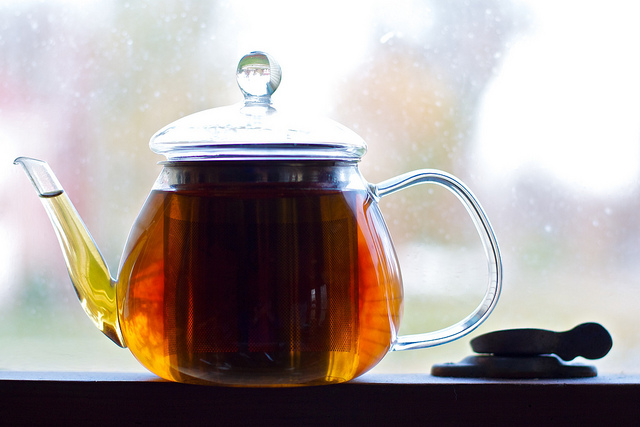
Here is another reason to kick start your day with a cup of tea. New research shows that drinking tea helps to live longer.
In the study, people who drank tea regularly had a 24 percent reduced risk of dying from non-cardiovascular events than coffee-drinkers.
Cardiovascular disease is a term that refers to the disorders of the circulatory system consisting heart and blood vessels. It includes heart attacks, strokes, hypertension, rheumatic heart disease, congenital heart disease and heart failure.
The study looked at people visiting the Paris IPC Preventive Medicine Center, between 2001 and 2008. Nearly 1,31,401 people, aged between 18 and 95, were included in the study. About 727 people died, from cardiovascular (95) and non-cardiovascular reasons (632), in the follow- up period.
Participants self-reported their daily intake of coffee or tea. It included three classifications- non-drinkers, those who drank one to four cups a day and heavy drinkers (more than four cups a day).
At the end of the study, Professor Nicolas Danchin and colleagues from France found that drinking tea was much safer than coffee.
People who drank coffee regularly had a higher risk of cardiovascular events than those who completely abstained from the drink. The risk went up with smoking. Coffee drinking was associated with reduced physical activity. Smoking was more prevalent among coffee-drinkers than non-drinkers. Heavy coffee intake was associated with slightly lowered systolic blood pressure (SBP) and higher diastolic blood pressure (DBP).
Coffee intake was directly associated with non-CV mortality risk, but smoking contributed mainly for this occurrence, according to Danchin.
"The trend for higher mortality in coffee drinkers is probably largely explained by the fact that there are more smokers in the group who drink a lot of coffee," Danchin said, in a news release.
Compared to coffee drinkers, tea lovers had a reduced risk of cardiovascular events. Fewer people in the group smoked compared to non-drinkers.
Interestingly, physical activity went up with an increase in the number of tea a person drank. Tea drinkers achieved 4 to 5 mmHg decline in SBP and 3 mmHg drops in DBP.
Though drinking tea was associated with reduced risk of cardiovascular events, the benefits disappeared after factors like age, gender and smoking were taken into consideration. However, researchers found solid evidence to show that tea reduced non-CV mortality and credited antioxidants for the occurrence.
"Tea drinking lowered the risk of non-CV death by 24% and the trend towards lowering CV mortality was nearly significant," Danchin added.
"Tea has antioxidants, which may provide survival benefits. Tea drinkers also have healthier lifestyles so does tea drinking reflect a particular person profile or is it tea, per se, that improves outcomes - for me that remains an open question. Pending the answer to that question, I think that you could fairly honestly recommend tea drinking rather than coffee drinking and even rather than not drinking anything at all."
Danchin presented the findings at the European Society of Cardiology (ESC) Congress held in Barcelona on Sunday.

















